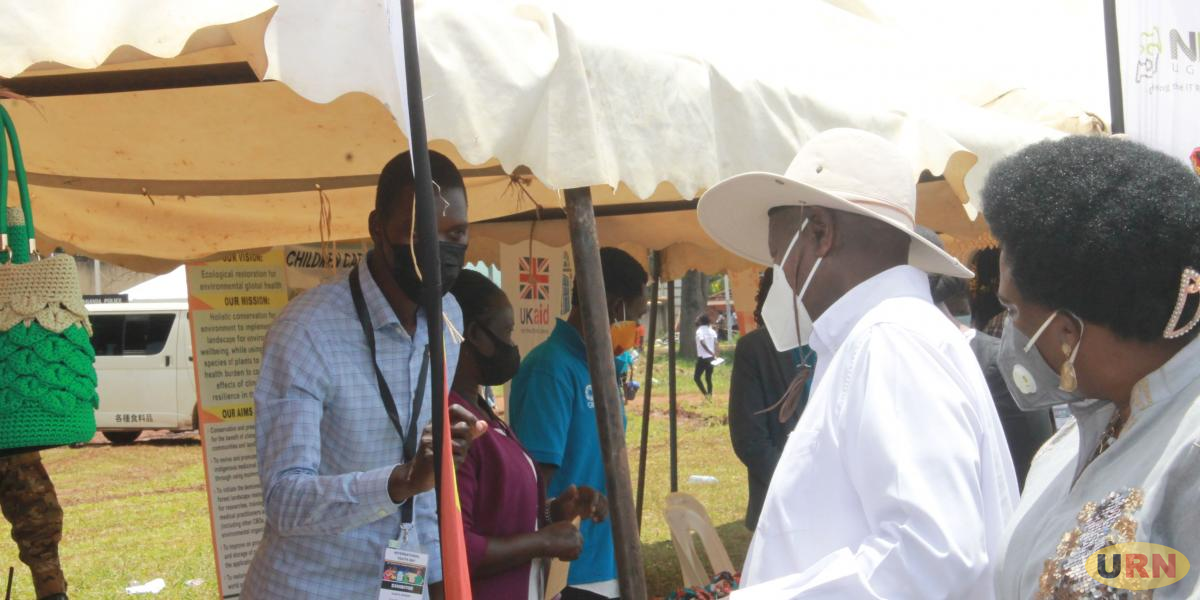Richard Olanya, a resident of Kanyagoga in Bardege-Layibi division, Gulu City, has become a local hero by taking the lead in managing organic waste and combating environmental pollution. His pioneering solution involves breeding black soldier fly larvae (BSFL), which efficiently convert organic waste into edible biomass rich in essential nutrients.
Equipped with a Diploma in Mechanization in Agriculture from Busitema University, Olanya has established a maggot production farm in the backyard of his half-acre property.
Gulu City generates approximately 65 tons of organic waste monthly, consisting of leftover food from hotels, restaurants, homes, decaying raw food from markets, and the remains of brewery waste known as “ting” from “lace and join.”
The statistics show that 75% of the waste is organic, causing foul odors, clogged drainages, and health hazards due to improper disposal. In 2015, Olanya ventured into poultry farming in his backyard but faced challenges in sourcing affordable chicken feeds from the market.
His concern for the environment and a desire to provide nutritious and locally made animal feeds motivated Olanya to explore alternative solutions. He began researching the breeding of black soldier fly larvae and the production of organic feeds for fish, poultry, and pigs.
Black soldier fly larvae are known for their high protein content compared to soya beans and silverfish, making them an ideal and cost-effective feed for poultry.
Olanya’s breeding process involves attracting flies using organic food waste, allowing them to lay eggs. After two weeks, the larvae hatch and are dried for feeding poultry.
Through Green Growth Plus Investment, Olanya employs a team of five staff members whom he trained to assist with the breeding processes. The investment company utilizes at least 800 kilograms of organic waste monthly for producing fertilizers, feeds, and breeding black soldier fly larvae.
Green Growth Plus Investment offers both fresh and dried black soldier fly larvae, with fresh larvae priced at Shillings 2,000 per kilogram and dried ones at Shillings 5,000 per kilogram. Moreover, the company sells organic fertilizer for Shillings 800 to 1,000 per kilogram, depending on the quantity purchased. This successful venture generates at least Shillings 900,000 in monthly revenue.
Not only has Olanya transformed waste management and livestock feeds, but he also actively trains other farmers on the initiative, creating employment opportunities for the youth. He envisions expanding his operation on acres of land to start mass production of black soldier fly larvae and its products, including value addition.
Additionally, Olanya plans to establish a demonstration farm for pigs, poultry, and fish rearing to inspire farmers to use his products. His ambitious goal is to produce 10,000 tons of black soldier fly larvae in the next two years, utilizing 40,000 tons of organic waste monthly.
The Mayor of Bardege-Layibi division, Patrick Oola Lumumba, expressed admiration for Olanya’s groundbreaking efforts. They have taken proactive measures by segregating skips for organic and inorganic waste, collected from various garbage collection points in Lacor, Alot, and Awere Markets.
This forward-thinking approach to utilizing black soldier fly larvae to manage organic waste provides an affordable source of nutritious animal feeds for local farmers.
Olanya’s vision for a cleaner environment and thriving livestock industry sets an inspiring example for his community and beyond. His innovative solution brings hope for a more sustainable future, demonstrating that simple yet transformative ideas can create lasting positive impacts.

